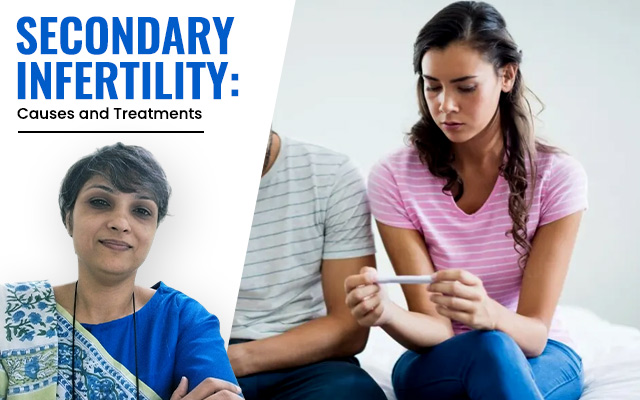Many couples find it harder to conceive the second time around, even if their first pregnancy was easy, and it’s more common than you might think. While it can be emotionally stressful, the good news is that help is available. With the proper care and support, growing your family is possible.
What is Secondary Infertility?
It is when a couple has difficulty conceiving after already having one or more biological children without fertility treatment.
What are the Causes of Secondary Infertility?
Age
Fertility naturally declines with age. Women over 35 and men over 40 may experience reduced reproductive potential, making conception more difficult.
Hormonal Imbalances
Conditions like Polycystic Ovary Syndrome (PCOS), thyroid disorders, or irregular ovulation can disrupt fertility.
Uterine or Fallopian Tube Problems
Sometimes, problems like leftover scars from earlier surgeries, small growths in the womb (like fibroids), or blocked tubes that carry the egg can make it harder to get pregnant or for the baby to grow properly in the womb.
Weight Changes and Lifestyle
Sudden weight gain or loss, smoking, alcohol, stress, and poor diet can all play a role in secondary infertility.
Complications from Previous Pregnancy or Birth
Infections, uterine scarring (Asherman’s syndrome), or changes in reproductive health after delivery may also affect the ability to conceive again.
Treatments for Secondary Infertility
The proper treatment depends on the underlying cause, which includes:
Lifestyle Modifications
Improving diet, reducing stress, and maintaining a healthy weight can positively impact fertility.
Ovulation Induction
Medications may be prescribed to regulate ovulation and improve the chances of conception.
Surgical Interventions
In some cases, surgery may be needed to remove small growths in the womb to treat conditions like open blocked fallopian tubes to help improve fertility.
Conclusion
Suppose you’re under 35 and have been trying to conceive for over a year or over 35 and trying for six months without success. In that case, it’s wise to consult a fertility specialist like Dr Smita Jadhav, the best gynaecology doctor in Salt Lake.


